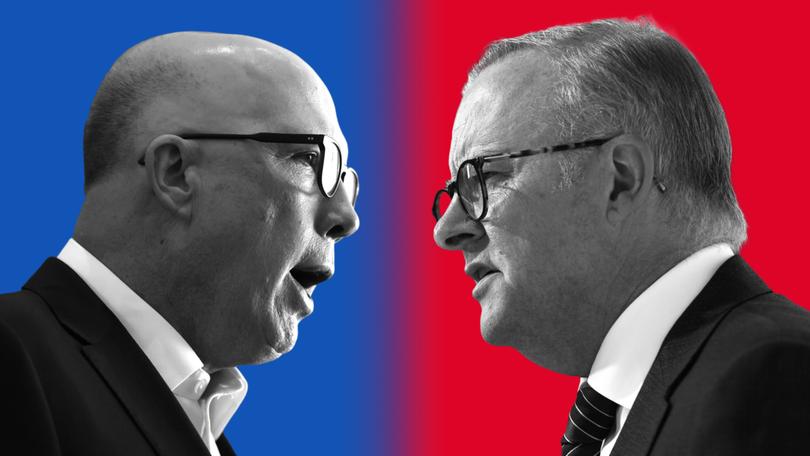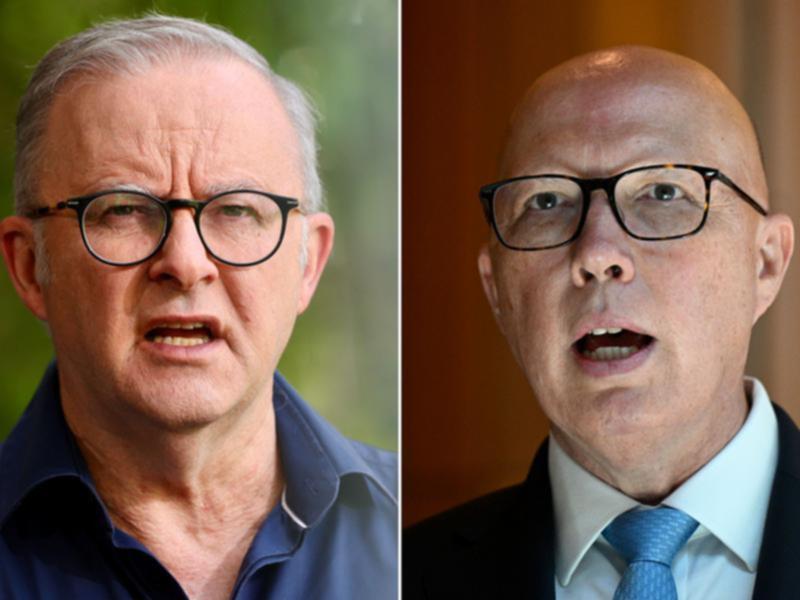MARK RILEY: Interest rate cut is the one thing that could convince voters a recovery is near
MARK RILEY: Many are still doing it tough, but confidence generally is beginning to rebuild. An interest rate cut is the one thing that could put the word ‘recovery’ at the centre of political discussions.

Anthony Albanese will follow a time-honoured prime ministerial tradition when he takes to the stage at the National Press Club next Friday to deliver his first major speech of the year.
The January leaders’ address has long been an opportunity for prime ministers to seize the initiative at the start of the political year and set the agenda on their own terms.
That opportunity is particularly important in an election year.
Sign up to The Nightly's newsletters.
Get the first look at the digital newspaper, curated daily stories and breaking headlines delivered to your inbox.
By continuing you agree to our Terms and Privacy Policy.But the timing of this year’s appearance will take on an added significance.
When Albanese stands at the podium next week it will be precisely one year and one day since he took the biggest gamble of his prime ministership on that very same platform.
It will be 12 months since he broke his 2022 election promise on the stage three tax cuts.
Albanese had insisted on dozens of occasions that he would not change stage three, despite the compelling equity arguments for doing so.
Just weeks after his election, he told me on a 7NEWS Spotlight special that he wouldn’t because: “My word is my bond”.
And 12 months ago at the National Press Club he broke his word in an effort to improve his bond with Australian voters in the wake of the Voice referendum disaster and in the teeth of a once-in-a-century cost-of-living crisis.
Peter Dutton labelled it “a betrayal” and “a major breach of trust”, calling Albanese “a liar” and demanding an immediate election.
That was never going to happen.

But he will get that election some time before May 17 and we’ll finally learn what Australian voters value more — politicians who keep their word or an extra $1500 a year in their pockets during tough times.
I think we all suspect we know the answer: “I’ll take the money thanks.”
The Government’s job over the next few months, though, is to remind people that they actually got that money.
Like much of what this Government has done over the past two years, the tax cuts seem to have quickly faded from the voting public’s memory.
It is emblematic of a broader inability to make its political messages stick.
It is partly because voters aren’t listening and partly because they don’t want to.
But they will tune in over the coming weeks and months as the election nears and they are forced to make a decision.
The popular view seems to be that there is a global trend against centre-left, progressive governments that will make the task of re-election even more difficult for Anthony Albanese.
But it is more a global trend against incumbency.
Yes, Donald Trump’s MAGA forces have punted the hapless Biden-Harris Democrats from the White House.
But Keir Starmer’s British Labour Party has also evicted Rishi Sunak’s Conservatives from Downing Street.
Some voters are angry. Most are simply unhappy. An international cost-of-living crisis will do that. And voters are taking it out on governments. All governments.
It is happening at a State and provincial level and it is happening to national governments.
The challenge for Albanese is to prevent it happening to his, or at least contain the backlash to an extent that allows him to survive in minority.
That, at present, appears to be the most likely outcome.
Politics is a numbers game. The magic number for Peter Dutton is 22. That is the number of seats he has to win to gain a majority.
Achieving that will require a landslide of epic proportions. And landslides are almost always driven by voters who are so angry they turn up to polling booths with their proverbial baseball bats out.
The prevailing view on both sides, however, is that Australian voters are not so unhappy that they’ll swing for the bleachers and belt the Government out of the park.
Things are starting to turn. Many are still doing it tough, but confidence generally is beginning to rebuild.
An interest rate cut is the one thing that could accelerate that trend and put the word “recovery” at the centre of the economic and political discussions.
The coming election is a real contest, though. And that is great credit to Peter Dutton.
The Coalition shouldn’t be in with a shot. First-term governments are rarely defeated. Many come close. But very few lose.
Dutton’s approach has been politically negative, but it has worked. It is a large reason the Government has got so little credit for its achievements.
That drives Albanese to distraction.
He will no doubt decry Dutton’s uncompromising style of opposition in his Press Club address next Friday.
But, at least privately, even he would concede that Dutton’s negativity has been a political positive.

